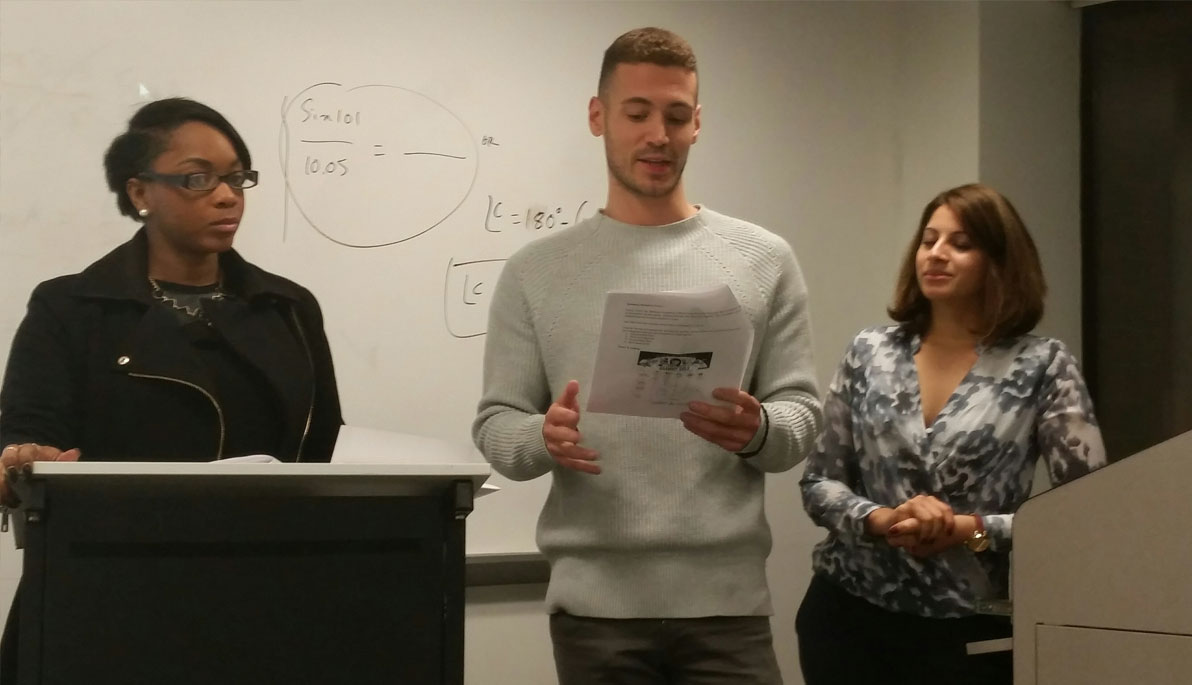
To Ace Larry Jaffee's Crisis Communications Class, Learn to Thrive in Chaos
December 3, 2015
When Larry Jaffee outlined NYIT's first crisis communications course in 2013, he had to be nimble.
"As I planned the course, I realized a lot of improvisation would happen based on what's in the news," says Jaffee, an adjunct instructor of communication arts at NYIT-Manhattan. His ability to navigate the news cycle and go with the flow comes from years of experience as both a journalist and public relations professional.
Jaffee's graduate course (COMM 663) is not your traditional lecture. Weekly class conversations careen from how government agencies cope with media coverage of hackers stealing sensitive data from their systems, to Ebola outbreaks ravaging rural countries, to the public fallout of bad business practices, such as the ongoing fuel emissions scandal plaguing Volkswagen.
"I decided to go outside the textbook and bring in special guests who are crisis experts to talk to students about their experiences," says Jaffee. "Major breaches hit the news every week and some of my class speakers are involved in advising the corporate victims of these attacks."
Role-playing is also required. For their midterm projects, students work in teams to concoct fictional crises, oftentimes inspired by real events reported by the media. On presentation day, the classroom is a theater.
Earlier in fall 2015, teams of students in his class acted out the faux-pas of besmirched brands and sullied celebrities—there was even a presentation of a fictional crisis entangling the Grammy Awards and singer Beyoncé. Funmilola Falana, Can Altuglu, and Kiara Morales (pictured above) imagined that a rogue employee of the Grammys' auditing firm conspired with a member of the singer's management staff to rig the awards voting system in Beyoncé's favor. Students learn from the presentations and go on to write crisis plans that address the mock scenarios for their final assignments.
Jaffee writes regularly about similar data breaches for SC Magazine, a publication for IT security professionals. His features and special reports chronicle how companies respond to and plan for cybersecurity crises, such as last year's major hack of Sony Pictures, a case study that frequently comes up in his crisis course.
In addition, he is working on an e-book about DDoS (distributed denial-of-service attacks) and serves as a fellow of the Ponemon Institute, a leading cybersecurity think tank. Everything Jaffee gleans from these outside writing projects comes full circle with his class, which tends to draw NYIT students from countries outside of the United States. His fall 2015 class includes students from China, Saudi Arabia, Turkey, France, Jordan, and South Korea. Cultural sensitivity is another key element to dealing with crises.
"When the Charlie Hebdo shooting crisis happened, students talked about how the French media covered the story differently than the American media," says Jaffee, also citing the Malaysian Airlines' crash. "It's good for us to consider different cultural perspectives in crises and learn from them."
More Features

An Alumnus’ Commitment to the Environment
As an energy management graduate from New York Tech’s Vancouver campus, Jasdeep Gulati (M.S. ’22) is highly invested in educating people about environmental and climate sustainability.

Vancouver Faculty Win University-Sponsored Research Awards in New Program
The new Global Impact Research Grant (GIRG) program has been developed to keep Vancouver-based faculty connected to faculty and research projects being conducted on the university’s New York campuses.

Studying Climate Change One Degree at a Time
Junhua Qu (M.S. ’24) began her collegiate journey in Beijing. But, her interest in climate change took her to New York Tech’s Vancouver campus to study energy management.
